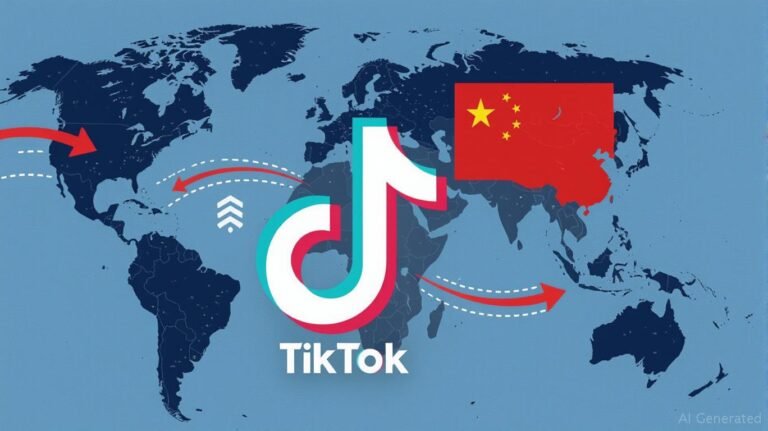TikTok’s future in the U.S. stands at the center of a tense geopolitical struggle. The ongoing U.S.-China negotiations over data control and tech ownership reveal much more than just the fate of one app. These talks show how global technology and investments are shifting amid rising techno-nationalism.
At stake is data sovereignty. U.S. officials want TikTok’s American user data stored and managed within the United States. China insists ByteDance, TikTok’s parent company, follow its export rules on critical technologies, including TikTok’s algorithm. This creates a deadlock that both sides use as leverage in wider trade talks about tariffs and rare earth minerals.
Negotiations have stretched into their third extension, with a new deadline set for September 2025. The White House’s delays suggest it understands TikTok’s huge cultural and economic impact. The app’s AI-driven “Symphony” tools support $40 billion in annual advertising revenue, making TikTok a major player. For ByteDance, the choice is tough: sell off U.S. operations or face possible tariffs on its goods.
Investors should see this as a sign that tech companies working across borders face growing risks. Those caught between the U.S. and China may see lower valuations until rules become clear. But firms that provide solutions for data localization and cybersecurity could benefit greatly.
Two investment themes stand out from the TikTok saga:
Data Localization and Cybersecurity
Companies that help manage secure data flows or compliance tools are becoming more important. CrowdStrike, known for cloud-based cybersecurity, helps protect complex data networks similar to TikTok’s. Palo Alto Networks offers threat detection for global firms. Both companies currently trade below their five-year price-to-earnings averages, even as demand grows.
Oracle and Microsoft also play key roles in storing TikTok’s U.S. data. Oracle’s “Project Texas” aims to host U.S. data safely, and cloud services now make up 22% of Oracle’s revenue. Despite this, Oracle’s stock trades at a forward P/E of 11, which is low compared to its growth potential. Microsoft stands to gain if partnerships with TikTok strengthen.
AI Infrastructure
TikTok’s AI “Symphony” tools highlight the rising value of AI platforms. NVIDIA’s graphic processors power many AI models. C3.ai builds AI solutions for businesses. These companies could benefit as apps invest more in AI to stay competitive. But China’s semiconductor export bans threaten NVIDIA’s supply chain. This geopolitical risk keeps some pressure on their valuations until trade issues ease.
Certain sectors are worth watching closely:
- Cloud Providers: Oracle, Microsoft, and Amazon dominate U.S. cloud services. Their scale and neutral status make them vital for cross-border data deals like TikTok’s.
- Cybersecurity: Beyond CrowdStrike and Palo Alto Networks, firms like Zscaler and Fortinet offer zero-trust security, which is key for global firms needing strict data rules.
- Semiconductors: Companies like ASML and Applied Materials supply essential chip-making tools. Their outlook depends on progress in U.S.-China semiconductor talks but remains uncertain due to export restrictions.
Investors should be cautious about pure Chinese tech giants like Alibaba and Tencent. Unless China signals a clear easing of regulations, these stocks remain vulnerable to trade tensions. Their valuations are low, but upside will likely wait for greater policy clarity.
In this geopolitical tug-of-war, TikTok’s situation provides a clear window into how technology, politics, and finance intersect today. Cross-border tech companies now face both new risks and chances shaped by national security concerns. Savvy investors will watch closely to find winners among those enabling data security, AI innovation, and cloud infrastructure.







